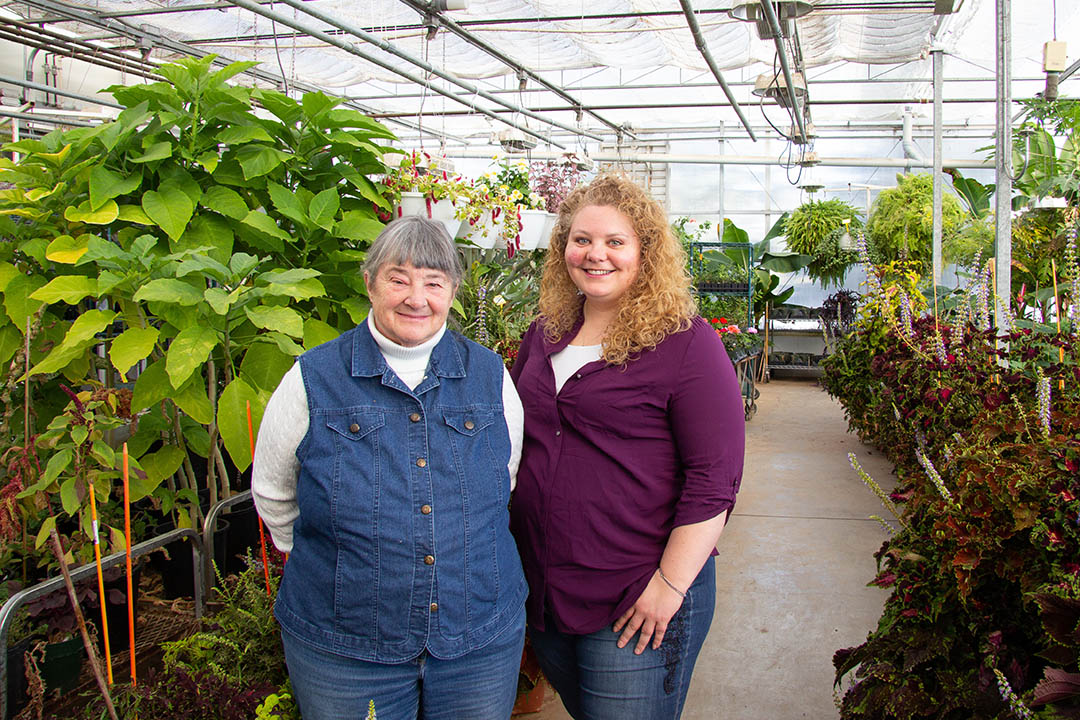
USask’s Hort Week celebrates 34 years
Gardeners and plant aficionados of all kinds will descend on the city during the 34th annual University of Saskatchewan (USask) Hort Week, beginning May 4.
By MYKAELA MENNIE and MEGHAN SIREDHort Week is a nine-day event that includes more than 50 workshops, classes and tours of university facilities that focus on gardening, plant sciences, ecology and horticulture themed art.
Vanessa Young, co-ordinator of Hort Week and the Gardening Outreach Program in the College of Agriculture and Bioresources, said the major gardening event is open to the public, and no previous gardening experience is required.
“The really wonderful thing about Hort Week is that plant people are really passionate people,” said Young. “They’re a very engaged community. They’re engaged in their environment and they’re happy to share what they’ve learned. This is their passion, and they bring that passion into the classroom.”
Hort Week doesn’t just garner local attention. In the past couple of years, Young said they have had visitors come from all corners of the world to witness what Saskatoon has to offer the international horticulture community.
“People from across Canada often attend our classes, but the year before last we had people from the Netherlands, and last year we had a visiting professor from Mexico,” said Young. “I was really surprised by the Dutch ladies because they had no connection to our campus. They were travelling in Canada and heard about our event through social media. I watched them make friends throughout the week—it was interesting to see how our very different climates grow such compatible gardeners.”
There are many free events throughout the weekend, including Sara Williams’ session, Irreverent History of Gardening, on Sunday, May 5 at 7 pm in Room 106 in the Biology Building. Students who attend this session will get to bring home an heirloom tomato or dinosaur kale. Williams is one of the founders of Hort Week and said she became interested in gardening when she lived in Tanzania.
“My first garden was in Tanzania, in east Africa, in 1963, and it was the first time that I had soil and land to work on,” said Williams. “It was at a new school and there was no landscaping. There are all sorts of plants that are either native or have been introduced to east Africa from other tropical places, so it was just a gold mine there.”
Williams said a version of what is now called Hort Week began in 1985 when the university did outreach talks in different communities around the province. Eventually, classes were held in Saskatoon at USask, but Williams said in the beginning, the classes weren’t necessarily applicable to your average city gardener.
She remembers a professor teaching an early Hort Week class on how to prune a tree by using a cherry picker crane and a chainsaw. William said now classes support pesticide-free, sustainable practice and focus on low maintenance methods, skills to grow healthy food, and practical advice on what to do when something goes wrong.
“Really all you need is soil, water, and about five essential tools and everything else just gets in the way,” said Williams. “It’s more of a simple process than people might think.”
Young said that while most classes are for personal interest, some of the classes during the week can be counted towards Master Gardener certification, a program offered at USask.
“The certification classes are really the core skills gardeners need—like basic botany and soil skills, insect identification and disease control,” said Young. “Since anyone can take any class, most people start out taking a few certification classes out of interest, and soon enough they find they have enough to certify. Once a gardener is in the certification program, they do volunteer work in their community to practice their newfound skills.”
Young said students working on their Master Gardener certificate do volunteer work across the province in schools and public gardens, with organizations like Ronald McDonald House and the Saskatoon Food Bank Garden Patch, and with seniors who are unable to garden.
“Having some extra help in the yard may be the extra help some seniors need to stay independently living in their own homes,” said Young.
More information about Hort Week, May 4–12, 2019.
More information about the Master Gardening Certificate.

